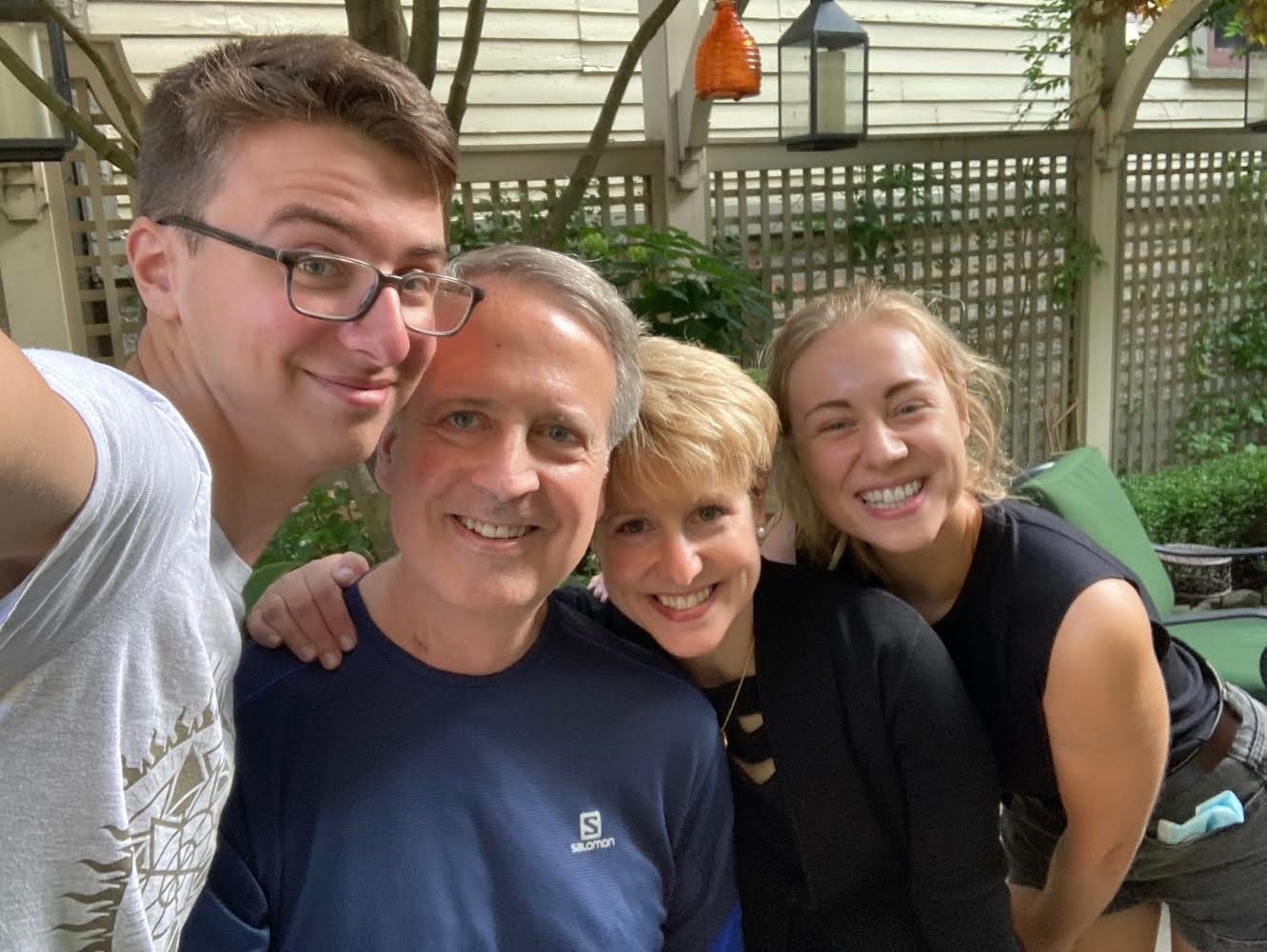Huebners Thank Their Care Team with Heart Failure, Myocarditis Fund

This story was published in the March 2021 issue of The Philanthropist, a newsletter for supporters and friends of Northwestern University Feinberg School of Medicine and Northwestern Memorial Foundation. Read the whole issue here.
In July 2020, Charlie Huebner was admitted to Northwestern Memorial Hospital with giant cell myocarditis, a rare disease involving inflammation of the heart muscle with unknown causes and no cure. A week later, he received a heart transplant.
Grateful for the care he received, Mr. Huebner and his wife, Caroline, made a generous gift to the Feinberg School of Medicine to create a new fund for research and education in heart failure and myocarditis. They hope to spur new investigations into heart failure and lesser known cardiovascular diseases while also honoring Mr. Huebner’s physicians, including Esther Vorovich, MD, the heart failure lead on his care team, and Amit Pawale, MD, the surgeon who performed his transplant.
“Part of why giant cell is so deadly is that it is so rare, unknown and misdiagnosed,” shared Mr. Huebner, who is the founder of a private equity investment firm in Chicago. “That’s why I was really lucky that I landed at Northwestern and with this team.”
“What sets Northwestern apart is collaboration,” added Mrs. Huebner. “Dr. Vorovich used everything she had in her arsenal—not just book knowledge but also her network of other physicians—to consult other experts inside and outside Northwestern. So many people came together to make our experience great, from the nurses to the students to the people who clean the room and deliver the meals.”
Mr. Huebner is well today, but he believes more research needs to be done so that treatments less severe than a heart transplant can help future patients with myocarditis.
“We are incredibly thankful for Charlie and Caroline’s philanthropy,” said Jane Wilcox, MD, ’10 ’11 GME, assistant professor of Medicine in the Division of Cardiology and chief of its heart failure section. “This funding is a vital catalyst that allows us to grow our research and training programs and, we hope, improve how clinicians diagnose and treat patients with myocarditis, cardiomyopathy and other conditions that can lead to heart failure.”
Here, Mr. Huebner further describes his experience at Northwestern and why he and Mrs. Huebner decided to support a new research fund.
Please share a bit about your care at Northwestern Memorial Hospital.
I was otherwise healthy, and the onset of my disease was very quick. This was my first inpatient experience since the day I was born 59 years ago! Considering such an abrupt change in circumstances, my experience at Northwestern was exceptional across the board. There were numerous teams that were, without exception, supremely competent and caring.
In particular, I owe my life to Drs. Vorovich and Pawale and their teams. Because giant cell myocarditis is so rare and misdiagnosed, I am certain that I would not be here today if not for Dr. Vorovich’s knowledge, tenacity and network of expert contacts that allowed her to identify the problem before it was too late. Dr. Pawale is an outstanding cardiac surgeon. What sets him most apart besides his expertise and competence in the operating room is his care and compassion in helping navigate the difficult days and weeks following surgery. He seemed to be ever-present, and he is held in the highest of regard by everyone at Northwestern who knows him. He is a role model for true dedication.
Why did you choose to create a heart failure and myocarditis fund at Northwestern? What kind of impact do you hope your gift has?
Philanthropy is important to us. First and foremost, this is personal expression of gratitude for an institution and team of people that saved a life and a family, and is doing so much good for the world. We have learned a lot about heart failure and myocarditis in the past six months. Even with all of the resources and advances in cardiology in general, we see that there is much to be done in terms of awareness and research in certain niches, such as myocarditis.
What would you tell others who are thinking about contributing to the fund?
Giant cell and other forms of myocarditis are serious and deadly diseases. Yet, they remain somewhat in the shadows since (outside of centers of cardiac excellence, like Northwestern) awareness is low and the diseases are often misdiagnosed. The fund that we established is named for the disease, not us. It can only have a real impact if others are similarly moved to contribute to research in this field. Therefore, we hope that this will grow through contributions from others who share our hopes for better outcomes. There is much to be done, and we believe there is no better cause and no better place to seek a solution than at Northwestern.
For more information about supporting cardiology, please contact Tiffany Scaparotti at 312-503-3088 or tiffany.scaparotti@northwestern.edu.